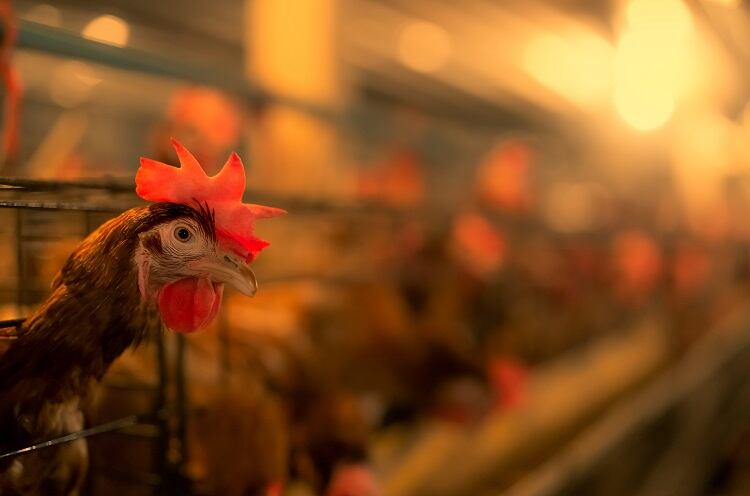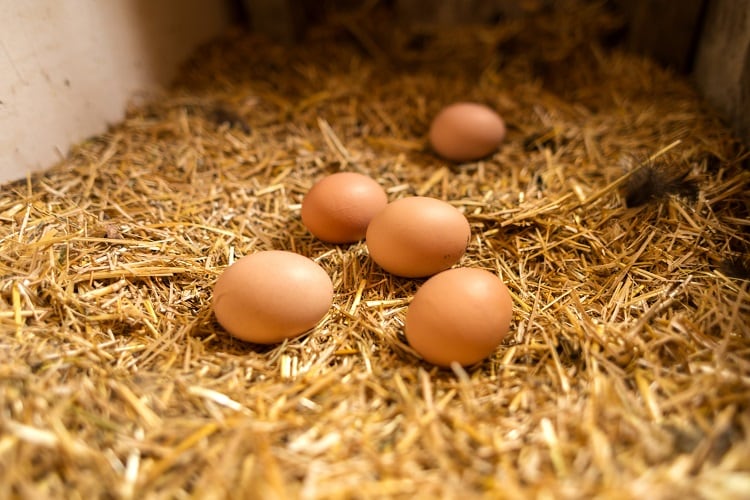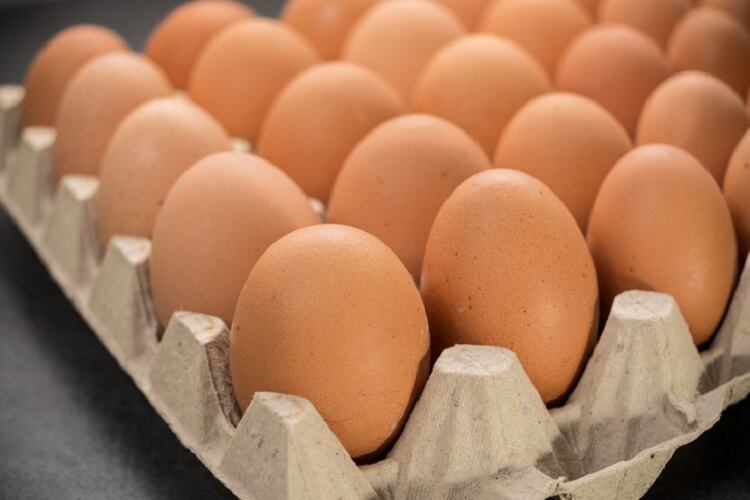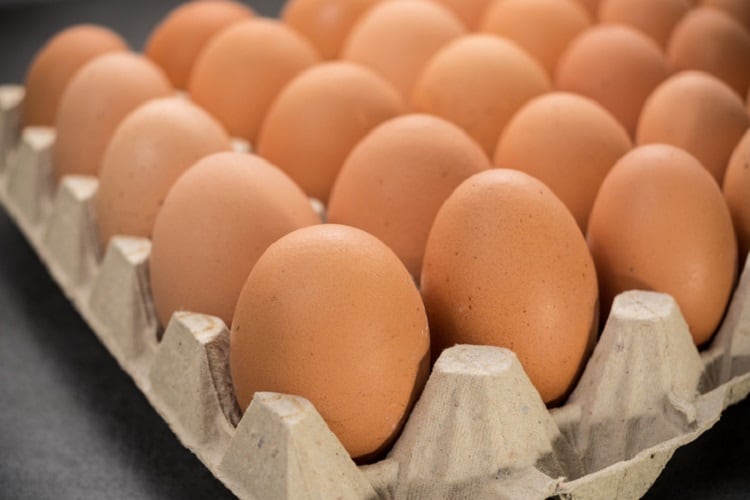An estimated 413 million laying hens are raised across the bloc, producing 6.9m tonnes of eggs or egg product per year. Average egg consumption is calculated at 12kg per capita per year.
While progress has been made to improve welfare standards for laying hens in recent years, notably via the European Commission’s banning of battery-caged eggs under Directive 1999/74/EC in 2012, many in the food sector believe more can be done.
In line with ‘popular support’ for legislative action, today (17 March) a selection of food majors made their position on the matter known. In a letter to MEPs, Nestlé, Unilever, and Mondelēz International, among others, said they want to phase out the use of caged hens in animal farming.
Campaigning to ‘end the cage age’
Addressing Commission heavyweights, including Executive Vice-President Frans Timmermans and Commissioner Stella Kyriakides, the cohort publicly aligned themselves with the End the Cage Age European Citizens’ Initiative.
The Initiative, project managed by animal welfare charity Compassion in World Farming, aims to do what it says on the tin: put an end to caged hens in the European agri-food sector.
“Companies moving away from eggs from caged hens have paved the way for changing how EU farmed animals are kept. Cage-free systems are widespread, economically viable, and provide better living conditions for hens,” noted the letter, which was also signed by Aldi, Barilla, Ferrero, Ikea, and Jamie Oliver Limited.
The food majors argue that the business case for phasing out cages for egg laying hens, in particular at EU level, is ‘strong’. “Along with our companies, over 1000 businesses in Europe – retailers, manufacturers, and food service providers – have already eliminated cages for hens or have pledged to do so by 2025.
“Indeed, since 2019, the majority of hens kept commercially in the EU have been in alternative systems, whether barn, free range or organic.”
The food majors are campaigning for a revision of animal welfare legislation, starting with caged hens, that supports farmers in the transition.
Reforming industry from within
The signatories pledged their commitment to helping reform the food industry, ‘from within’.
For Swiss food giant Nestlé, eliminating cage eggs from its supply chain is, quite simply, ‘the right thing to do’. “Switching to cage-free eggs is a central part of our strategy on improving animal welfare,” a spokesperson told this publication.
“It is the right thing to do, is proven to contribute to animal welfare, and is supported by society and consumers.”

Unilever says it has recognised the impact cages can have on hens’ quality of life for ‘many years’. “Research shows that hens suffer in cages and that well-managed cage-free systems provide them with a much better quality of life,” we were told.
“Across Europe, all our brands – including Hellmann’s, Amora and Calvé, have used 100% cage-free eggs since 2009.” Across the pond, the company met its 2020 target of sourcing 100% cage-free eggs in North America, the spokesperson added.
Committing to cage-free by 2025
A growing number of food brands are committing to eliminate caged eggs from global supply chains.
Unilever, for example, while already cage-free in Europe, has pledged to ensure that 100% of its global egg supply chain is cage-free by the end of 2025. “Farm animal welfare has been an important part of our supplier Sustainable Agriculture Code for many years,” said the spokesperson.
“We were one of the first global companies to work with egg suppliers to start providing cage-free eggs for our products.”
Nestlé has also set itself a global 2025 target. As it stands, the company uses 100% cage-free eggs in its food products across Europe.
“Our objective is to achieve improvements in welfare standards in a sustainable and efficient way, ensuring consumers continue to access high quality food throughout,” the spokesperson told FoodNavigator, stressing that collective action is key to this outcome.
“Our impact is limited on its own and the upcoming revision of the EU legislation on animal welfare would lead to a much greater level of conversions from caged to cage free systems in the EU. We wherefore support the campaign as the right thing to do for laying hens.”
Ikea and Mondelēz are also among the companies to have committed to a cage-free target within the next few years.
“At Ikea, we are happy to join other leading food businesses and 1.4 million people in supporting the development of EU legislation to drive forward this sector-wide improvement – when we come together, large scale change is possible,” noted a company spokesperson.
“We are committed to moving away from caged egg production by the end of 2025, and work continuously to improve animal agriculture and animal welfare through our Better Programmes.”
At Mondelēz, Director of Public Affairs AMEA Can Buharali said phasing out the use of cages for egg-laying hens across the EU is a ‘priority’.
“We are proud of our progress in improving animal welfare as we work towards our 2025 cage-free commitment in the EU. We are happy to support the ‘End the Cage Age’ European Citizens’ Initiative.”
The executive continued: “This takes us one step further towards farm animal welfare and sustainable food and farming.”




